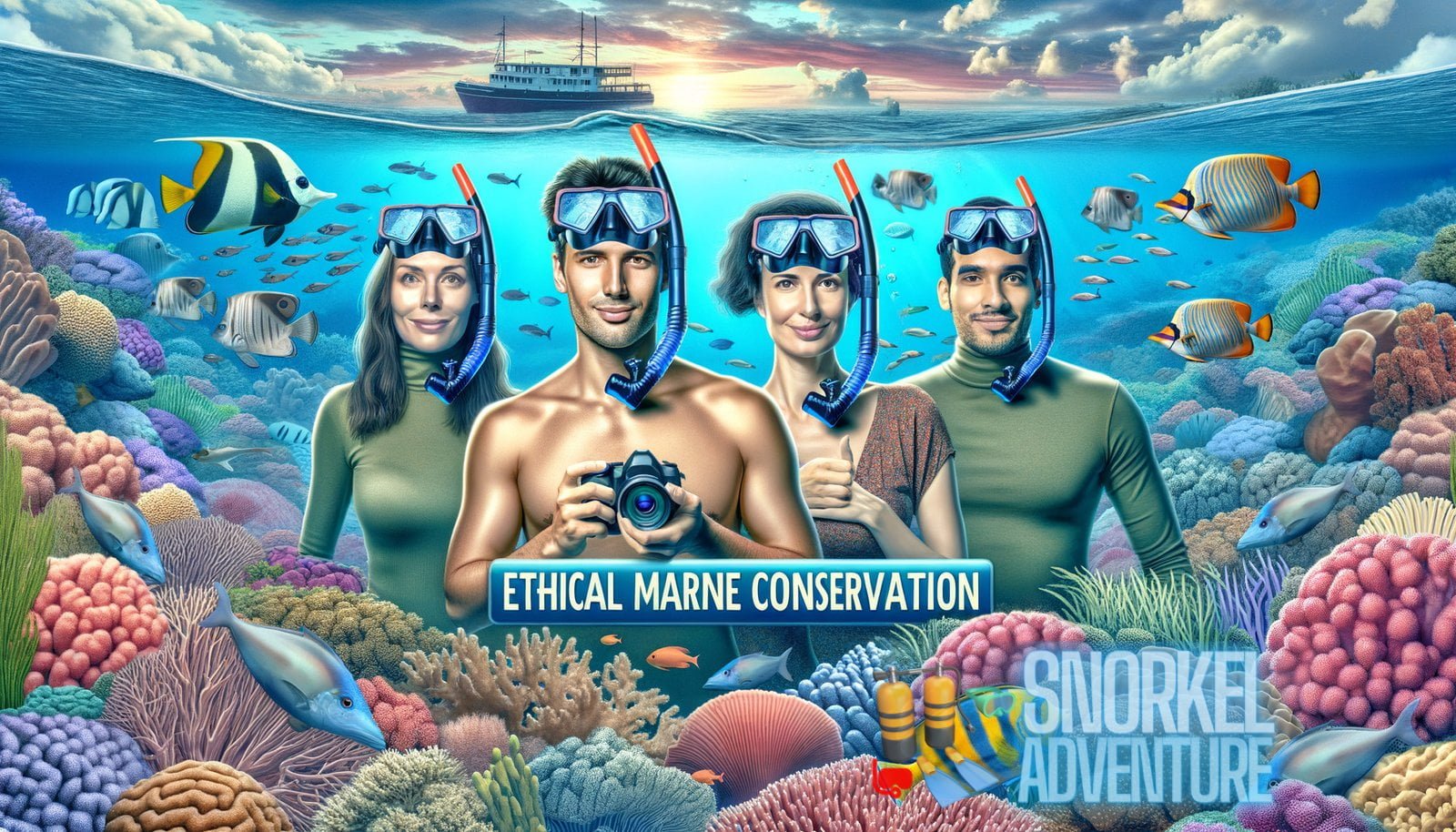Introduction
Snorkeling is a popular activity that allows people to explore the fascinating underwater world without the need for extensive training or specialized equipment. It provides an incredible opportunity to observe marine life up close and personal, and many snorkelers become passionate about the conservation of the marine environment as a result. In this article, we will dive deeper into the hidden world of snorkeling and marine conservation, exploring how snorkelers can actively contribute to the preservation and protection of our oceans.
The Importance of Marine Conservation
Marine conservation plays a crucial role in ensuring the health and longevity of our oceans and everything that relies on them. Here are some key reasons why marine conservation is important:
- Biodiversity: The ocean is home to an astonishing array of marine species, many of which are yet to be discovered. By conserving marine habitats, we are protecting the biodiversity of these ecosystems and preserving the delicate balance of life.
- Ecosystem Services: Oceans provide a wide range of valuable services, such as regulating the climate, generating oxygen, and providing food and livelihoods for millions of people worldwide. By conserving marine ecosystems, we are ensuring the continuity of these essential services.
- Climate Regulation: The ocean plays a vital role in regulating the Earth’s climate by absorbing carbon dioxide and heat. Healthy marine ecosystems are more effective at sequestering carbon and mitigating climate change impacts.
The Role of Snorkelers in Marine Conservation
Snorkelers have a unique opportunity to become ambassadors for marine conservation and make a positive impact on the underwater world they love to explore. Here are some ways in which snorkelers can contribute to marine conservation:
- Responsible Snorkeling: Snorkelers can make a difference by practicing responsible snorkeling techniques. This includes avoiding touching or stepping on coral reefs, refraining from feeding or disturbing marine life, and choosing reef-safe sunscreen to protect themselves without harming the environment.
- Participating in Citizen Science Projects: There are several citizen science programs designed specifically for snorkelers to contribute data to ongoing research and conservation efforts. These projects may involve monitoring coral reefs, documenting marine species, or collecting water quality data.
- Supporting Marine Conservation Organizations: Snorkelers can support marine conservation organizations financially or through volunteer work. These organizations play a vital role in protecting marine habitats, conducting research, and advocating for stronger conservation measures.
By actively participating in these initiatives, snorkelers can help ensure the long-term health and sustainability of our oceans.
The Impact of Snorkeling on Marine Ecosystems
While snorkeling is a low-impact activity compared to other forms of underwater exploration, it can still have an impact on marine ecosystems if not done responsibly. Here are some potential impacts of snorkeling:
- Physical Damage: Snorkelers who accidentally touch or step on coral reefs can cause physical damage to these fragile ecosystems. Coral reefs are living organisms that take years to grow and provide vital habitats for countless marine species.
- Disturbance: Snorkelers who chase or harass marine life can disturb their natural behavior and cause stress. This is particularly harmful during critical life stages, such as reproduction or feeding.
- Pollution: Improper disposal of waste, including sunscreen and plastic items, can contribute to pollution in the ocean. Chemicals from sunscreen can harm coral reefs, while plastic waste can entangle or be ingested by marine life.

It is essential for snorkelers to be aware of these potential impacts and take steps to minimize their ecological footprint while enjoying their snorkeling adventures.
Best Practices for Eco-Snorkeling
Eco-snorkeling refers to snorkeling in a way that minimizes environmental impact and maximizes the potential for positive interactions with marine life. Here are some best practices for eco-snorkeling:
- Choose Reputable and Responsible Tour Operators: When booking a snorkeling tour, choose operators that prioritize environmental sustainability and adhere to responsible snorkeling practices.
- Respect Marine Life: Keep a safe distance from marine life and never attempt to touch, feed, or ride marine animals. This applies to both fish and larger marine creatures, such as turtles or rays.
- Minimize Your Footprint: Avoid standing on or touching coral reefs, as this can cause damage. Use flippers or fins to move around without kicking up sediment or disturbing the marine environment.
- Use Reef-Safe Sunscreen: Choose sunscreen products that are labeled as reef-safe, as they do not contain harmful chemicals that can bleach or damage coral reefs.
- Pack Out Your Trash: Ensure that you leave the snorkeling site as you found it by properly disposing of any trash or waste. Avoid bringing single-use plastics and opt for reusable alternatives whenever possible.
By following these best practices, snorkelers can enjoy their underwater adventures while minimizing their impact on marine ecosystems.
The Role of Marine Protected Areas
Marine protected areas (MPAs) are essential tools for the conservation and management of marine ecosystems. These designated areas aim to protect marine biodiversity, preserve habitats, and sustainably manage fisheries. Here are some key benefits of marine protected areas:
- Habitat Protection: MPAs provide a refuge for marine species and habitats, allowing them to recover and thrive. By limiting or prohibiting certain activities, MPAs help preserve the integrity of marine ecosystems.
- Fisheries Management: MPAs can play a crucial role in managing fisheries by providing spawning grounds and nurseries for commercially important fish species. By allowing fish populations to replenish, MPAs support sustainable fisheries outside their boundaries.
- Scientific Research: MPAs often serve as living laboratories for scientific research, enabling scientists to study marine ecosystems and monitor the effects of conservation measures.
Snorkelers can actively support marine protected areas by visiting and snorkeling in designated MPA sites. By doing so, they contribute to the economic value of these areas and demonstrate the importance of protecting marine habitats for future generations.
Conclusion
Snorkeling offers a unique opportunity for people to connect with the marine environment and witness the beauty and diversity of underwater ecosystems. By embracing responsible snorkeling practices and actively participating in marine conservation efforts, snorkelers can help protect and preserve these fragile ecosystems for future generations to enjoy.
Snorkelers play an important role in marine conservation by raising awareness, collecting valuable data, and supporting organizations working tirelessly to protect our oceans. Together, we can ensure that the hidden world of snorkeling remains a vibrant and thriving ecosystem for years to come.


